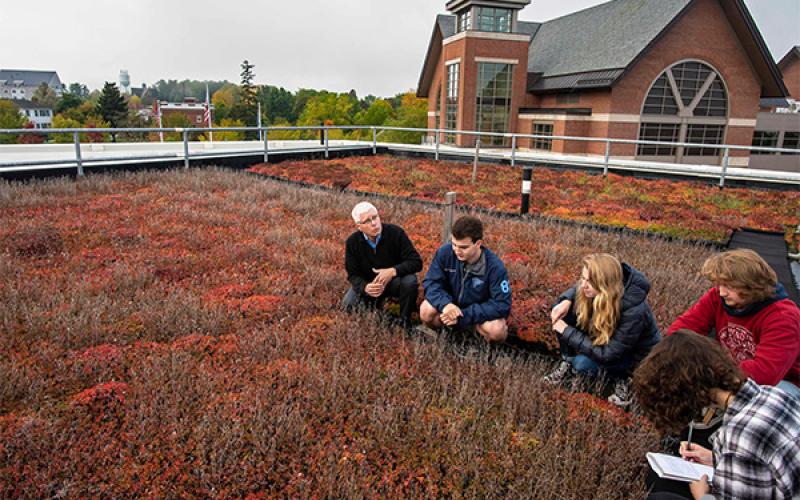
Green Schools Initiative

What is stormwater? Stormwater is water from rainfall and melting snow or ice that moves over the land and collects pollutants as it makes its way to lakes, ponds, streams, and other surface waters. In urban areas, stormwater reaches surface waters more quickly and in larger volumes during and immediately following rain events than it does in natural areas. This is due to the many impervious surfaces in urban areas that prevent stormwater from infiltrating into the ground. Conversely, in natural areas, stormwater can more easily soak into the ground. It then makes its way slowly through the ground, recharging surface waters from beneath.
Why does stormwater matter? The health of Lake Champlain and other water bodies in the Lake Champlain basin, which lies within portions of Vermont, New York, and Quebec, is negatively impacted by nonpoint sources (not from one single source) of pollution. Pollutants can include phosphorus, nitrogen, sediments, chloride, and bacteria, which are all carried to water bodies in stormwater runoff. Thus, it is critical that everyone understand what stormwater is and how to help clean it and reduce its volume before it enters local waterways.
What is the Green Schools Initiative? The Green Schools Initiative aims to reduce stormwater runoff and pollution entering Lake Champlain via public school grounds and offers funding and technical assistance to help public schools and state colleges meet the Three-Acre General Permit stormwater regulation. Learn if your school makes the list, Schools Affected by Vermont Three-Acre Rule. To help Vermont public schools in the Lake Champlain and Lake Memphremagog watersheds with three or more acres of impervious surface comply with the new Three-Acre Rule, technical assistance and funding is available through Greenprint Partners.
Learn more about the Vermont Stormwater General Permit 3-9050 which serves as the general permit for the “Three-Acre General Permit” as required under the Vermont Clean Water Act, through the Vermont Agency of Natural Resources Department of Environmental Conservation.
View and Download Permitted Designs
Program Contact: Ashley Eaton, akeaton [at] uvm.edu